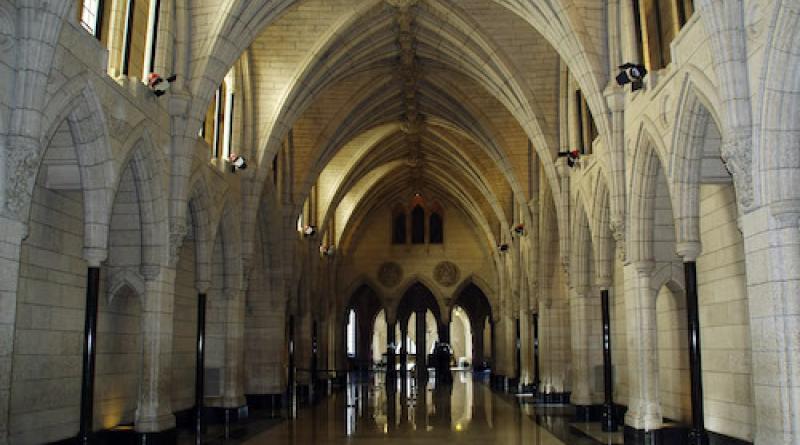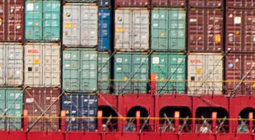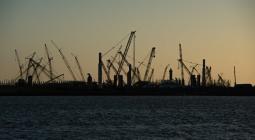Blame Fossil Profits, Not Carbon Tax, for ‘Skyrocketing’ Prices: McKenna

As Prime Minister Justin Trudeau’s political adversaries frame a tax exemption for home heating oil as evidence that his climate policies clash with affordability, blame is diverted away from the fossil fuel companies who are the real culprits behind escalating prices, says Canada’s former environment and climate minister, Catherine McKenna.
“We keep overlooking this fact: The skyrocketing price of heating oil and gas being paid by Canadians isn’t caused by the carbon price where all the money is given back,” writes McKenna, who served in Trudeau’s cabinet from 2015 to 2021 and introduced Canada’s carbon pricing system in 2017, in an opinion piece for The Toronto Star.
“It’s the skyrocketing price of heating oil and gas being charged by large oil and gas companies.”
Putting it in figures, “from 2020 to today, the carbon price on heating oil increased by 12¢ a litre as the average price for heating oil shot up 75¢,” add Clean Energy Canada’s Rachel Doran and Trevor Melanson in an opinion piece for the Globe and Mail. “The real drivers of rising home heating oil prices are wars and the Organization of the Petroleum Exporting Countries (OPEC), not a climate policy that leaves 80% of Canadians under the federal policy better off financially, thanks to quarterly rebates.”
The Liberal carbon tax “carve out” for Atlantic Canada, announced October 26, brought a long-running debate about Canada’s carbon tax back to the political forefront. It has become a renewed focal point for conservative politicians who frame the tax as a burden on Canadians—amid their wider criticism of Liberal climate policy.
In his October 26 announcement, Prime Minister Justin Trudeau simultaneously expanded a program to help households switch from oil to electric heat pumps, but that details appears to have flown under the radar. “Instead, the story in the news was that Justin Trudeau’s Liberals had cracked on carbon pricing,” write Doran and Melanson. “And long-time critics of the policy were quick to grab their favourite pickaxes.”
Conservative leader Pierre Poilievre has railed against carbon pricing in his “axe the tax” campaign, while Alberta Premier Danielle Smith is threatening to challenge the program before the Supreme Court of Canada. And following the exemption for Atlantic Canada, Saskatchewan Premier Scott Moe threatened to end carbon pricing on natural gas in his province. The move has been cast as “pitting region against region,” with demands for similar measures arising in other provinces.
The Liberals are defending the announcement as targeted relief to rural and low-income households—while maintaining the overall need for carbon pricing to meet climate goals, reports Reuters.
“Heating oil is two to four times more expensive than natural gas,” explained Energy and Natural Resources Minister Jonathan Wilkinson in a recent interview. “It went up by 75% in 2022.”
And “if you look at the people who typically are using heating oil, it is people who generally are less well off.”
Only about 3% of Canadians use heating oil, most of them concentrated on the Atlantic Coast, where Liberals have a strong contingent of MPs, Reuters notes.
Though the Liberals have said there will be no further carve-outs, climate advocates have criticized the exemption—for the leniency it lends to an emissions source, and for undermining the climate pricing policy as a whole.
“While the carbon tax lives on for now, it has been neutered, since no one can count on the certainty of the tax steadily rising,” wrote the Globe editorial board. “The Liberals have undermined their climate credibility.”
And Trudeau has also introduced public skepticism around other important climate policies, the Globe adds. “If one fuel in one part of the country gets a pass, then what of regional concessions for the proposed clean electricity regulations?”
But even now, the PM has options.
“Now more than ever, the federal government must show that climate action and affordability are two sides of the same coin,” Doran and Melanson advise. “That, as a government release quietly reminded people last week, households that swap oil heating for cold-climate heat pumps typically save up to $2,500 annually on their energy bills.”
But “instead, Ottawa allowed itself to be consumed by political theatre, which painted this as an admission that Trudeau’s signature climate policy was making life more expensive for Canadians, just as his Conservative opponents had claimed for years.”
The truth is that Canada’s carbon pricing system follows an approach pioneered by conservative politicians, McKenna points out. It’s a market mechanism that former prime minister Brian Mulroney used to address acid rain, and it was former premier Gordon Campbell who set up Canada’s first carbon pricing system in British Columbia.
“So on one hand we have today’s Conservatives who refuse to take lessons from their own. On the other, let’s remember that while we are in a fossil fuel climate crisis, the oil and gas industry is playing a double game,” adds McKenna, who has received accolades for her work on the 2015 Paris accord. “They are generating massive profits that they return to their shareholders while charging consumers exorbitant prices. At the same time they are demanding huge public subsidies to clean up the pollution they cause, while walking away from their already modest climate commitments.”
All of those factors show that an oil and gas windfall tax is overdue, McKenna writes. “It would address the climate crisis and improve affordability by giving that money back to families to help them get off fossil fuels and transition to cheaper, cleaner energy.”





